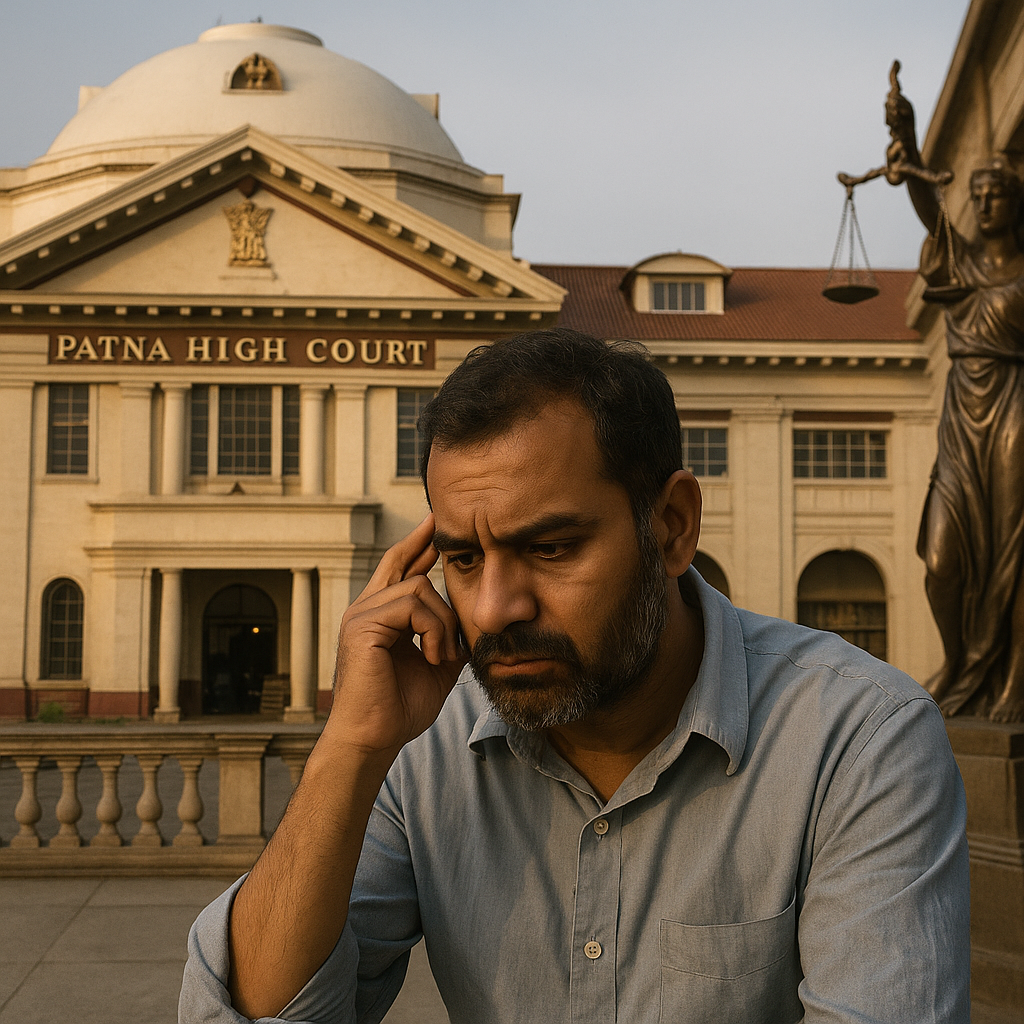Simplified Explanation of the Judgment
This case concerns a writ petition filed by a defendant in a long-running partition suit (Title Suit No. 60 of 2000) challenging the Sub-Judge’s order dated 24 May 2010, which barred him from filing a written statement.
The dispute relates to ancestral property of one Gokhula Tiwary, who had two wives. From the first marriage, he had two sons and a daughter; from the second, one son. The plaintiff (a son from the second marriage) claimed the properties were never formally partitioned, though different family members possessed parts of the land. He alleged that the first wife’s children sold parts of the land to relatives without consent, and later tried to transfer more land through sale deeds and gifts. Fearing a fraudulent transaction, the plaintiff filed the partition suit in 2000.
The original defendant no. 1 (from the first wife’s side) died before filing a written statement. The present petitioner (his son) and his mother were substituted as defendants and entered appearance on 23 August 2004 by filing a Vakalatnama. However, they did not file a written statement. On 6 January 2006, the trial court debarred them from doing so.
Nearly two years later, on 17 December 2007, the petitioner applied to recall the order, citing the deaths of his father and mother’s illness as reasons for delay. The trial court rejected this application on 24 May 2010, noting there was no affidavit, no proof of illness, and that sufficient opportunities had already been given.
Before the High Court, the petitioner argued that the time limit for filing a written statement under Order VIII Rule 1 CPC is directory (flexible) and not mandatory, and relied on Shaikh Salim Haji Abdul Khayumsab v. Kumar (2006) 1 SCC 46, where the Supreme Court allowed a late filing due to a one-day delay caused by a court holiday.
The State and the plaintiff opposed, stressing that the petitioner had shown negligence, waited almost two years after being debarred to seek recall, and offered no documentary evidence to justify the delay.
The High Court reviewed several Supreme Court judgments, including Kailash v. Nanhku (2005) 4 SCC 480, which held that while Order VIII Rule 1 CPC is directory, extensions beyond 90 days should only be granted in exceptional circumstances backed by evidence. The principles require:
- Cogent reasons preventing timely filing.
- The court’s written satisfaction that the circumstances were exceptional.
- Supporting evidence like affidavits or medical certificates.
Applying these principles, the High Court found:
- The petitioner had more than enough time to file a written statement but failed to do so.
- The recall petition lacked even basic supporting documents.
- There were no exceptional circumstances warranting judicial discretion.
The Court distinguished the Shaikh Salim case as involving only a one-day delay due to a court holiday, unlike the petitioner’s prolonged inaction.
Consequently, the writ petition was dismissed as meritless.
Significance or Implication of the Judgment
For litigants, this judgment reinforces that while procedural timelines in civil cases can be relaxed in exceptional circumstances, courts will not reward negligence or delay without strong evidence. The filing of a written statement is a fundamental step in defending a suit—failure to do so within the prescribed period, especially after repeated opportunities, risks being permanently debarred from presenting one’s defence.
For the judiciary, this decision reaffirms the importance of adhering to the principles laid down by the Supreme Court to prevent misuse of procedural flexibility. The High Court’s approach discourages deliberate delays aimed at stalling proceedings.
Legal Issue(s) Decided and the Court’s Decision with Reasoning
- Whether the trial court was justified in debarring the petitioner from filing a written statement due to delay.
✔ Yes. The petitioner had ample time, failed to act, and did not produce evidence of exceptional circumstances. - Whether the time limit under Order VIII Rule 1 CPC is mandatory.
✘ No. It is directory, but relaxation beyond 90 days requires exceptional reasons backed by evidence, which were absent here. - Whether the recall application should have been allowed.
✘ No. The application was filed nearly two years later, without affidavit or proof, and showed gross negligence.
Judgments Referred by Parties
- Shaikh Salim Haji Abdul Khayumsab v. Kumar & Ors., (2006) 1 SCC 46.
Judgments Relied Upon or Cited by Court
- Salem Advocate Bar Association, Tamil Nadu v. Union of India, (2005) 6 SCC 344.
- Kailash v. Nanhku & Ors., (2005) 4 SCC 480.
- Rani Kusum v. Kanchan Devi, (2005) 6 SCC 705.
- Shaikh Salim Haji Abdul Khayumsab v. Kumar & Ors., (2006) 1 SCC 46.
- R.N. Jadi Brothers v. Subhash Chandra, (2007) 6 SCC 420.
- Zolba v. Keshao & Ors., (2008) 11 SCC 469.
- Md. Yusuf v. Faij Md. & Anr., (2009) 3 SCC 513.
- Sambhaji & Ors. v. Gangabai & Anr., (2008) 17 SCC 117.
Case Title
Satyendra Tiwary v. Sita Ram Tiwary @ Baij Nath Tiwary & Ors.
Case Number
Civil Writ Jurisdiction Case No. 15520 of 2010
Coram and Names of Judges
Hon’ble Mr. Justice Mohit Kumar Shah
Names of Advocates and who they appeared for
For the Petitioner: Mr. Suresh Pd. Singh I, Advocate
For the Respondents: [Name not mentioned in order]
Link to Judgment
https://www.patnahighcourt.gov.in/ShowPdf/web/viewer.html?file=../../TEMP/4ce96574-0994-49a7-923f-8dfb04ba5862.pdf&search=Debarment
If you found this explanation helpful and wish to stay informed about how legal developments may affect your rights in Bihar, you may consider following Samvida Law Associates for more updates.









